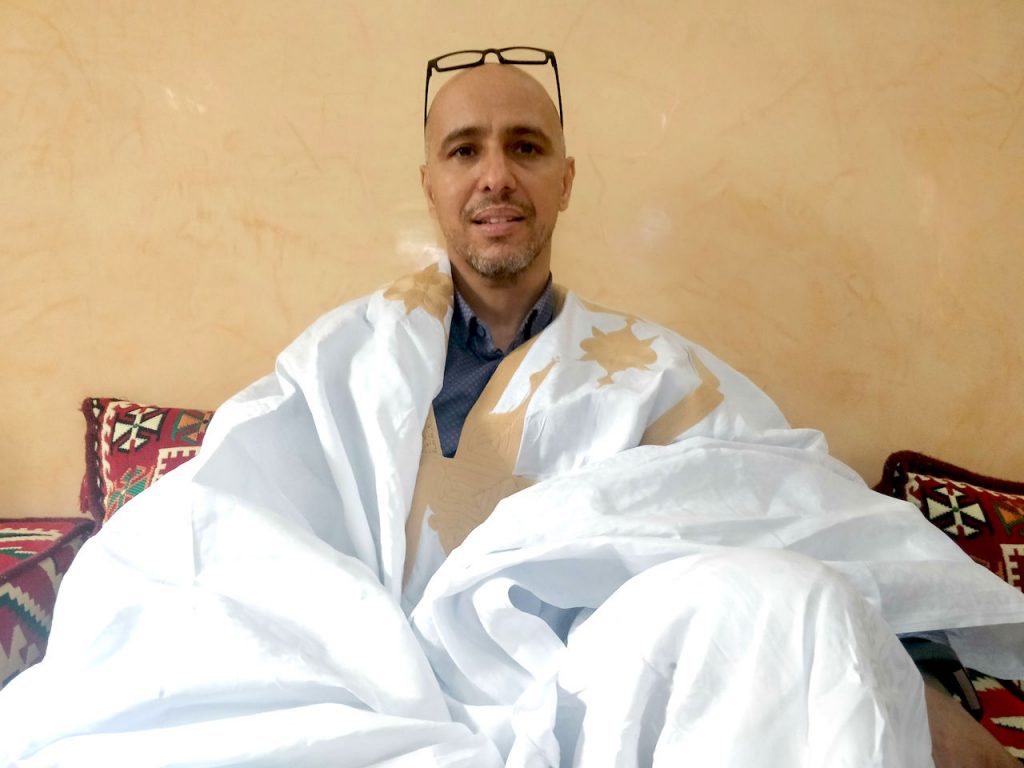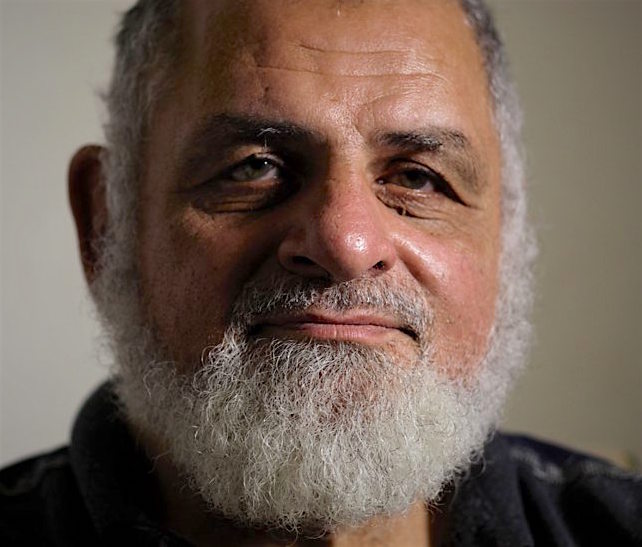Emergency Surgery on Iraqi at Guantánamo Reveals Cruelty of Congressional Ban on Transfers to US Mainland For Urgent Medical Care

Please support my work as a reader-funded journalist! I’m currently trying to raise $2500 (£2000) to support my writing and campaigning on Guantánamo and related issues over the next three months. If you can help, please click on the button below to donate via PayPal.
I wrote the following article for the “Close Guantánamo” website, which I established in January 2012, on the 10th anniversary of the opening of Guantánamo, with the US attorney Tom Wilner. Please join us — just an email address is required to be counted amongst those opposed to the ongoing existence of Guantánamo, and to receive updates of our activities by email.
Thanks to Carol Rosenberg of the New York Times for reporting on the latest news from Guantánamo about the troubling consequences of a Congressional ban on prisoners being taken to the US mainland for any reason — even for complex surgical procedures that are difficult to undertake at the remote naval base.
The ban has been in place since the early years of the Obama presidency, when it was cynically introduced by Republican lawmakers, and has been renewed every year in the annual National Defense Authorization Act (NDAA), even though, as the prisoners grow older, some of them have increasingly challenging medical issues that are difficult to resolve at the prison, where medical teams often lack equipment and personnel found readily on the mainland.
As Rosenberg explained, “The base typically sends US service members and other residents to the United States for complex care,” while shamefully denying that same level of care to prisoners, who are subject to “the constraints of so-called expeditionary medicine — the practice of mobilizing specialists and equipment to Guantánamo’s small Navy hospital specifically for the prison population.”
Torture Victim Ahmed Rabbani, A Case of Mistaken Identity, Approved for Release from Guantánamo

Please support my work as a reader-funded journalist! I’m currently trying to raise $2500 (£2000) to support my writing and campaigning on Guantánamo and related issues over the next three months. If you can help, please click on the button below to donate via PayPal.
Via Middle East Eye, and reporter Peter Oborne (formerly the chief political columnist of the Daily Telegraph, until his resignation in 2015), comes the welcome news that Guantánamo prisoner and torture victim Ahmed Rabbani has been approved for release from the prison via a Periodic Review Board, a parole-type process established in 2013 by President Obama.
Oborne was told about Rabbani’s approval for release by his lawyer, Clive Stafford Smith, the founder of Reprieve. “Even if it is nearly two decades late, it is fabulous that Ahmed has been cleared for release,” Stafford Smith said.
A Pakistani national of Rohingya origin, Rabbani, who is now 52 years old, was seized with his brother Abdul Rahim in Karachi in September 2002, and, after two months in Pakistani custody, spent 18 months in CIA “black sites” in Afghanistan, including the notorious prison identified by the CIA as ‘COBALT,’ but also known as the Salt Pit, or, as the prisoners described it, “the dark prison.” There he was hung naked from an iron shackle, with his feet barely touching the ground, and, like the other men held there, subjected to loud music designed to prevent them from sleeping.
Guantánamo Torture Victim Mohamedou Ould Salahi and the Extraordinary Power of Forgiveness

Please support my work as a reader-funded journalist! I’m currently trying to raise $2500 (£2000) to support my writing and campaigning on Guantánamo and related issues over the next three months of the Trump administration. If you can help, please click on the button below to donate via PayPal.
In the long and dispiriting history of the US prison at Guantánamo Bay, few of the 729 men and boys released have become household names, but one who has is the Mauritanian citizen Mohamedou Ould Salahi, best known as the author of the acclaimed memoir Guantánamo Diary, written while he was at the prison.
A victim of the US’s global network of torture prisons, and subjected to a special torture program at Guantánamo that was approved by then-defence secretary Donald Rumsfeld, Salahi (generally identified at Guantánamo as Slahi) was mistakenly regarded as a significant player in Al-Qaeda, but was finally approved for release in July 2016, and was released in Mauritania three months later, almost 15 years since his own government, as he so memorably put it, “turned me over, short-cutting all kinds of due process, like a candy bar to the United States.”
Despite being freed, Salahi is trapped in Mauritania, as his government has broken a promise to return his passport to him after two years, a situation that I wrote about in March, when, as I also pointed out, everyone released from Guantánamo — all those men and boys described by the US as “enemy combatants” — are forever tainted by the experience, and continue to live fundamentally without rights.
No Justice at Guantánamo: The Release of Ahmed Al-Darbi, and Moazzam Begg’s Reflections
 Please support my work as a reader-funded journalist! I’m currently trying to raise $2500 (£2000) to support my writing and campaigning on Guantánamo and related issues over the next three months of the Trump administration.
Please support my work as a reader-funded journalist! I’m currently trying to raise $2500 (£2000) to support my writing and campaigning on Guantánamo and related issues over the next three months of the Trump administration.
At the start of this month, Donald Trump transferred his first prisoner out of Guantánamo, the Saudi citizen Ahmed al-Darbi, who was repatriated as part of a plea deal arranged in his military commission proceedings in February 2014. However, he did not return home a free man, as, in his homeland, he will serve the remainder of a 13-year sentence agreed in his plea deal.
As I explained in an article at the time, “Under the terms of that plea deal, al-Darbi acknowledged his role in an-Qaeda attack on a French oil tanker off the coast of Yemen’s coast in 2002, and was required to testify against other prisoners at Guantánamo as part of their military commission trials, which he did last summer, and was supposed to be released on February 20 this year. However, February 20 came and went, and al-Darbi wasn’t released, a situation that threatened to undermine the credibility of the military commission plea deals.”
Al-Darbi’s transfer saved the only functioning part of the otherwise broken military commission trial system, which is incapable of delivering justice in an actual trial, given that the men in question, although accused of serious crimes, were lavishly subjected to torture over a number of years, and the use of torture, to be blunt, fundamentally undermines any possibility of a fair and just trial. Read the rest of this entry »
Life After Guantánamo: Egyptian in Bosnia, Stranded in Legal Limbo, Seeks Clarification of His Rights
 Please support my work! I’m currently trying to raise $2500 (£2000) to support my writing and campaigning on Guantánamo and related issues over the next three months of the Trump administration.
Please support my work! I’m currently trying to raise $2500 (£2000) to support my writing and campaigning on Guantánamo and related issues over the next three months of the Trump administration.
As part of my ongoing coverage of Guantánamo, I try, wherever possible, to keep track of the stories of former prisoners, especially those who were resettled in third countries, either because the US government refused to send them home, or because it was considered unsafe to do so — or, in the case of Palestine, because the Israeli government would not allow them to be repatriated, even if the US government wanted to.
Many of those resettled in third countries are Yemenis, and third countries had to be found for them because, since the start of 2010, the entire US establishment has regarded the situation in Yemen as too unstable from a security perspective to allow any Yemenis to be repatriated. Amongst those for whom repatriation was regarded as too dangerous are the Uighurs, 22 men from China’s Xinjiang province, historically oppressed by the Chinese government, who were found new homes around the world between 2006 and 2013, and a handful of men from other countries including Egypt, Libya, Syria and Tunisia.
In March, for Middle East Eye, the journalist Lidia Kurasinska wrote an article about Tariq al-Sawah, an Egyptian, who had been resettled in Bosnia-Herzegovina, in the capital, Sarajevo, in January 2016. Before his capture in Afghanistan in late 2001, al-Sawah had been living in Bosnia, where he had been granted citizenship, and had married a Bosnian woman, with whom he had a child, so this was not a random resettlement based solely on whichever country could be persuaded, through a combination of cash and favors, to give a former prisoner a home. Read the rest of this entry »












 Who's still at Guantánamo?
Who's still at Guantánamo?
